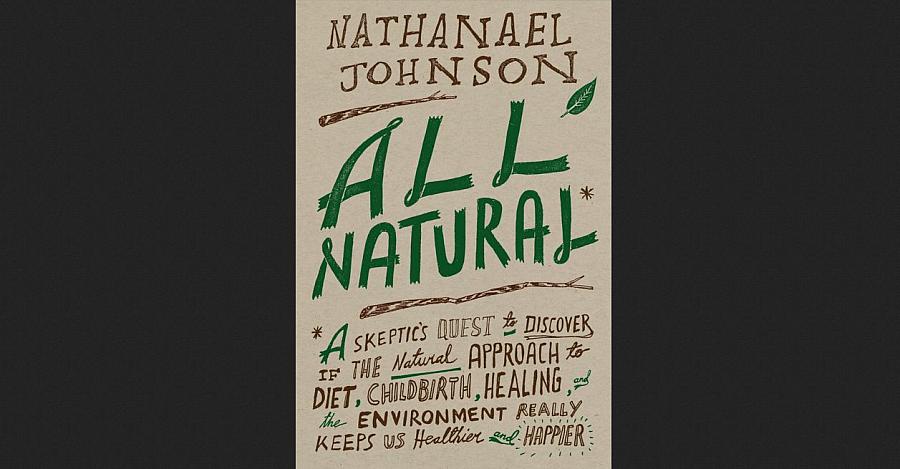Ecological Anxiety: New Book Taps Medical Fears, Yields Empowering Insights

Nathanael Johnson is one of the funniest speakers I have heard in recent memory.
Yet his topic is dead serious.
Johnson is on a book tour for All Natural*: *A Skeptic's Quest to Discover If the Natural Approach to Diet, Childbirth, Healing, and the Environment Really Keeps Us Healthier and Happier.
Johnson, who writes from his home base in San Francisco, grew up in Nevada City, made famous among hippies, beats, and other self-described free thinkers when Gary Snyder, Allen Ginsberg, and other well-known members of various 1960s clans bought 100 acres of land north of the town and turned it into a Zen-like outpost.
Johnson’s family held true to many of the same ideals that Ginsberg and Snyder were espousing. To oversimplify just a bit: Nature is good. Things that threaten or alter nature are bad. And chief among the bad are technological innovations that seem sudden and wholly unnatural, such as computers, food additives, and pharmaceuticals. As Johnson describes it in his book:
According to family ideology, good health resulted from forming connections with the surrounding world rather than controlling it, from finding harmony with nature. But when I encountered nature as a kid, instead of granting me health, it generally wanted to eat me: It wanted to lay eggs in my cereal, to fly clumsily into my ear, to skitter across my pillow and disappear into my blankets.
So Johnson became the family skeptic. He challenged his parents on their ideas and, over time, came to adopt a view that natural didn’t always equal good or better. But he also came to have a deeper appreciation for why so many smart, rational, and passionate people distrust technological and medical innovations.
He started his talk by asking how many people had doubts about the evidence to support broad childhood vaccination programs. I was with a scientific audience and so expected no hands to be raised, but here and there, I saw a palm meekly poking through the crowd. This type of reaction doesn’t surprise Johnson. He writes in his book:
In this age of global warming, killer germs, and obesity, it’s easy to feel as if we’ve somehow slipped out of synch with the global ecosystem. But it’s just as easy to dismiss that feeling by pointing out all the good that our industry has brought. We’ve got more stuff. We live longer. Everything gets better and easier.
I suspect most of us are actually stuck somewhere in the middle: We recognized the good that technology has conferred, but also have a gnawing sense that something is missing or awry. This sense is persistent, but frustratingly vague. Call it “ecological anxiety.” You know you’ve got it if you are occasionally concerned that hormone-mimicking chemicals are leeching from takeout containers into your food, but have found that plastic is too useful and too ubiquitous to avoid; if you’re left cold by encounters with the medical system, but aren’t really sure you believe that alternative practitioner your friend recommended; if you sporadically pay more for food marked “GMO free” or “All Natural” but only if it’s not too much more; if you use eco-friendly laundry detergents, but still dry your clothes with an energy guzzling machine rather than a line, and travel on airplanes and basically just live in the oil-hungry civilization you were born into because: What are you supposed to do? Go all Ted Kaczynski and move to a shack in the woods?
If you like the tone of that section, you’ll love the book. I left Johnson’s talk feeling incredibly inspired by the idea that instead of being just stuck in the middle of these polarizing feelings that we could actually respond to it as writers, as patients, as consumers, as parents, and as citizens of an earth in transition to we-don’t-yet-know-what.
Johnson has three main prescriptions for how we should respond. I’m going to address these each in turn in future posts.
Have some thoughts on the value of going all natural, write me at askantidote@gmail.com or via Twitter @wheisel.

